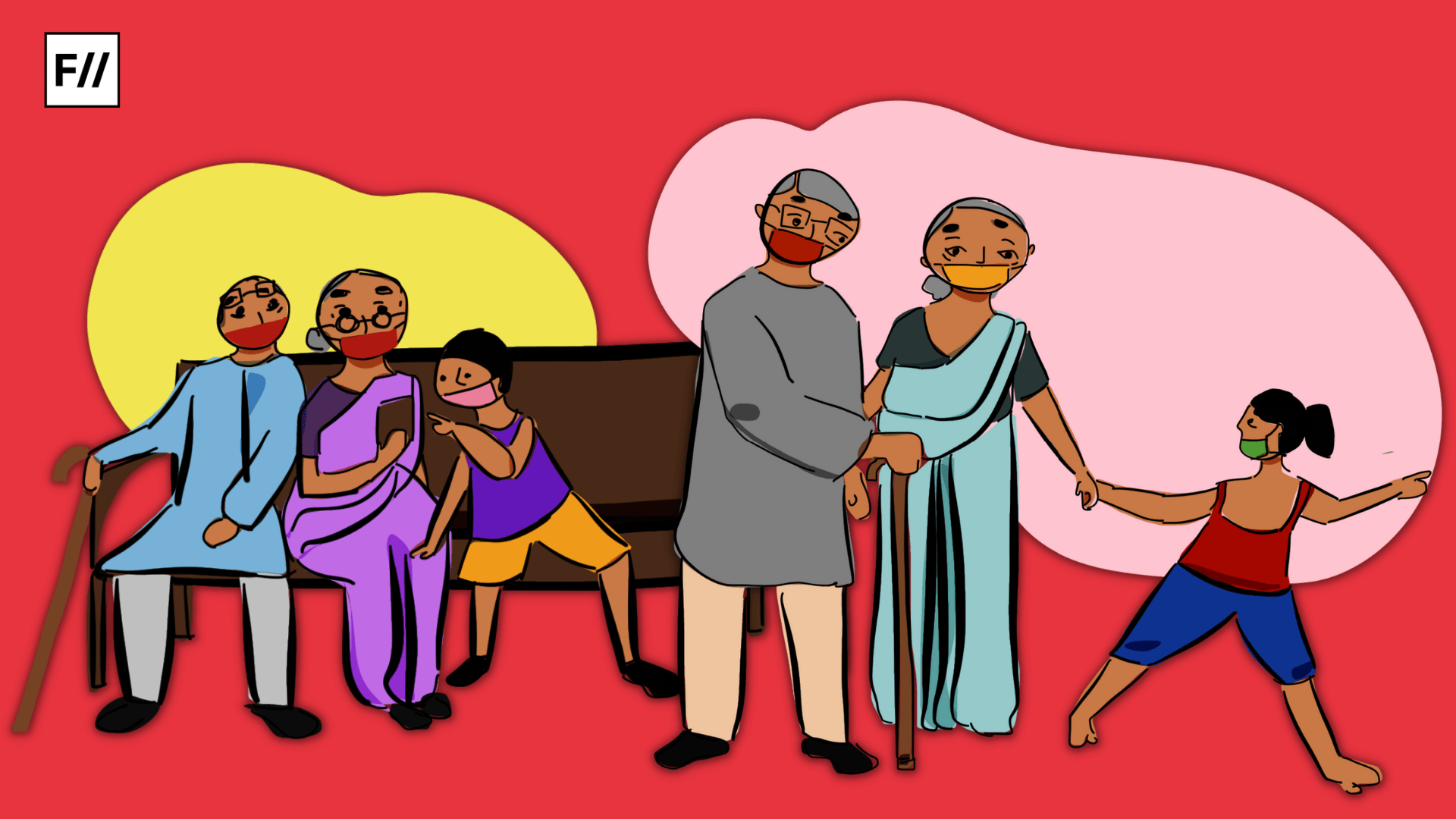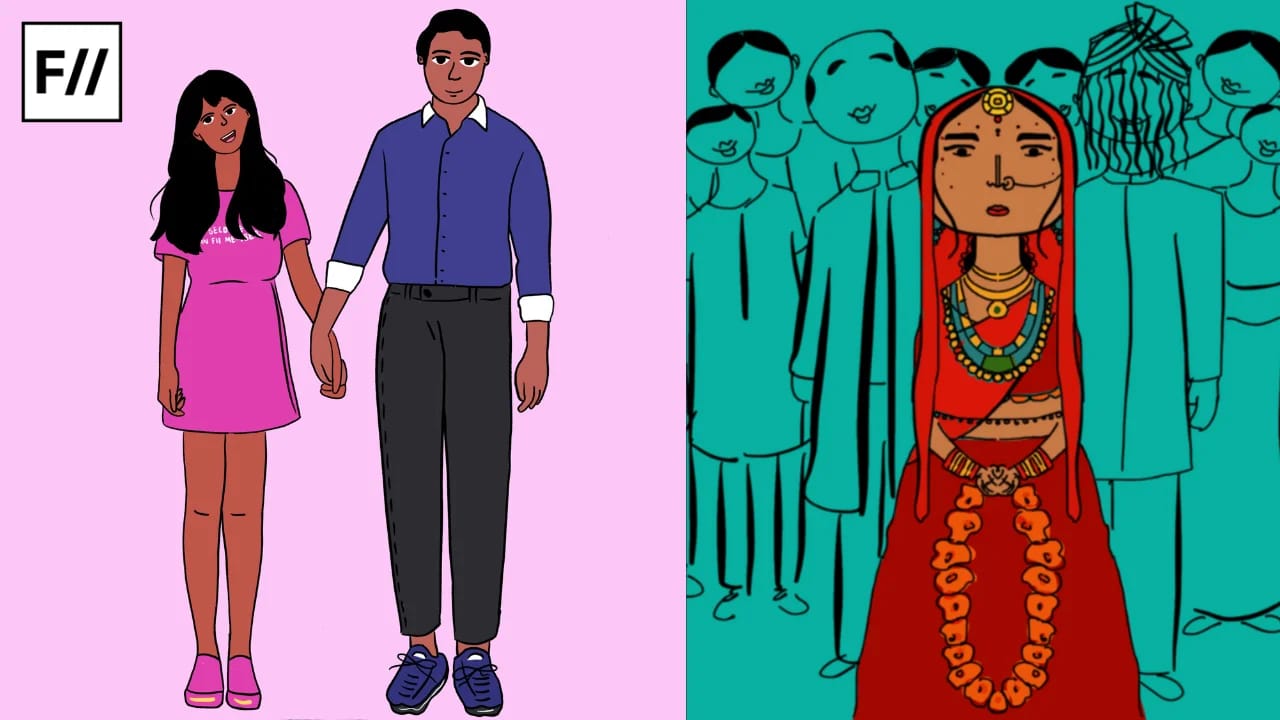Editor’s Note: FII’s #MoodOfTheMonth for October, 2021 is Navigating Complex Emotions. FII invites submissions on dissecting the many layers of various emotions in personal and public life, especially in the context of the pandemic, throughout this month. If you’d like to contribute, kindly email your articles to sukanya@feminisminindia.com
The pandemic has only worsened the situation of an already existing global concern- mental health. According to recent surveys, more than 450 million people suffer from one or the other mental disorder. With such an Earth-shattering statistic, it is indeed shocking that mental health is still overlooked and stigmatised.
In our day-to-day lives, health is mostly associated with physical fitness. While physical well-being is important, mental health must be taken care of as well. Unfortunately, due to the social stigma associated with mental health, even in the 21st century, most people hesitate to go for diagnosis and treatment, something which has only worsened with the on-going Covid-19 pandemic. Studies say that the worst hit are children and elderly. While children experience isolation, alienation, fear, uncertainty, and anxiety, on the opposite side of the spectrum, the elderly are more prone to abuse, torture, and seclusion, all of which severely deteriorate their mental well-being.

Emotional complexities faced by children
Growing up is not easy, and children experience a variety of phases in their years of physical and emotional growth. The interact with and face problems from various spheres including families, peers, and academics amongst others. The situation has become even more complicated with the entry of the pandemic. Overnight, the very futures of children across the world were jeopardised, and one such sphere of life that was affected the most was – education.
Although the shift from traditional modes to the online medium of education ensured that the academic journeys of students were largely uninterrupted, the sudden change has brought in the feeling of estrangement and disconnect amongst many. While students struggled to adjust to this new form of learning, they also had to cope with what accompanies online lessons.
One of the ways we can help ensure that children are nominally affected by this entire crisis is by keeping channels of communication open. It is our responsibility to regularly check in with children, and let them know that they have someone to talk to. Memories last for a lifetime, and our children deserve to look back on happy childhoods. With positive reinforcement and acceptance, children can still bloom, irrespective of the ongoing Covid-19 pandemic
Several reports suggest that children have been drastically impacted by increased screen time, and are displaying the result of this through their bodies- impacted vision, poor body posture, pains in the limbs etc. But what of the impact of virtual learning on children’s minds? What happens when you take away the in-person student teacher relationship? The points towards the deterioration of mental health amongst children.

Poor mental health can drastically affect learning and behaviour, not just in childhood but also throughout adult life. The Covid-19 pandemic, unfortunately, has brought with itself not just physical health concerns, but also a complex variety of issues that lead to mental health ramifications in children and adolescents.
Sadness, trepidation, hesitation, social isolation, and increased screen time have negatively affected children and young adults. Friendships and family bonds are essential for children and their growth, but the pandemic has severely disordered them. When shall the schools reopen? What does the future hold? This uncertainty has utterly engulfed not just the future of the world as we know it, but also the very essence of childhood.
Also read: Plants, Pandemic And Children: Discovering The Joys Of Gardening With A Six Year Old
One of the ways we can help ensure that children are nominally affected by this entire crisis is by keeping channels of communication open. It is our responsibility to regularly check in with children, and let them know that they have someone to talk to. Memories last for a lifetime, and our children deserve to look back on happy childhoods. With positive reinforcement and acceptance, children can still bloom, irrespective of the ongoing Covid-19 pandemic.
Struggles of the elderly to find balance
As we age, we enter our second childhood, and elders require similar care that is meted out to children. This includes special attention to nutrition, physical care, and more importantly, emotional and mental support. Elders get easily agitated, and require the constant presence and comfort of caregivers to allay all irrational, and sometimes very rational, fears.
This need has only increased with the advent of the pandemic. With all the anxiety inducing information flooding the media, the elders experienced an increased level of fear and distress. This was further intensified when they were identified as the most vulnerable among us to contracting the Covid-19 virus.
As concerned citizens, it is our responsibility to provide our elders with essential social support. This can be done easily within the parameters of social distancing. Technology has proven to be a boon in these circumstances, and allows connections across distances. Bonds remain intact with phone calls and video conferences

Older people have always been vulnerable to abuse, abandonment, and seclusion. The ratio of these experiences seems to have doubled during the various nationwide lockdowns. Weakening of health accompanies age and ageing, resulting in weaker immune systems and poorer defense against diseases. This has only amplified the levels of distress amongst older people which has considerably affected their eating sensibilities, sleep cycles, and overall physical and mental health.
Elders depend on face to face contact and they require it even more during these critical times. However, due to the nature of the virus their very support system has been taken away or altered tremendously.
As concerned citizens, it is our responsibility to provide our elders with essential social support. This can be done easily within the parameters of social distancing. Technology has proven to be a boon in these circumstances, and allows connections across distances. Bonds remain intact with phone calls and video conferences.
Also read: Pandemic And The Elderly: A Generation Compelled To Adapt, Leave Behind Life As They Knew It

These allow caregivers to check on their loved ones, and elders can feel assured that they are being cared for and remembered, even during these testing times. Social isolation is clearly important for them at this current hour, but there are ways to extend helping and caring hands virtually as well.
De-stigmatisation of mental health can only be facilitated with open discussions. The pandemic underlines the fact that we have been neglecting mental health, and that mental health is as important as physical health. Children and the elderly are among the more dependent, vulnerable groups in the society and hence, it is important for us to address how they have been coping and processing emotions during the pandemic.
Dr. Geetanjali Chopra completed her PH.D from JNU in International Studies and is the founder & president of Wishes and Blessings NGO. She is also an academician, researcher, columnist, and philanthropist
Featured Image: Ritika Banerjee for Feminism In India




